Read about supporters who have helped to solve our planet’s most pressing problems.

Pat Bowman and Richard Kolbell
From their home in the woods in Portland, Oregon, Pat Bowman, MSW, and Dr. Richard Kolbell apply their considerable energy and empathy to making the world a better place for people, animals, and the environment through their career and volunteer interests, and charitable giving. This most recently has included naming the Union of Concerned Scientists as a beneficiary of their estate, along with several other organizations doing work they believe in.
Read more of their story
And they say the reason they chose to include UCS in their estate planning is to “give forward to the future.”
“It’s a different way to give back,” Pat says. “I’ve been returning to the mantra of, ‘think globally and act locally.’ So, I’m going to be kind to my neighbors. I’m going to help babysit the kid next door. And I’m also going to invest in people having more information to make informed choices. Leaving money to UCS means more to me than leaving it to a person.”
Longtime residents of Portland, Pat and Richard have observed the local climate changing over time, with hotter, drier summers and more frequent wildfires. They recall a heat wave several years ago that spiked to 116°F.
And while they agree they’re fortunate to be out of harm’s way for extreme weather like hurricanes, Richard says, “There are more times during the year when low water alerts are present in reservoirs, streams, and lakes, which is especially evident as you drive through the countryside. So collectively, all of those point to: no matter what anyone with an ulterior motive tells you, this is happening.”
In addition to climate change, Pat and Richard are also concerned by the spread of disinformation and what they perceive as a devaluation of scientific truth. They appreciate UCS for educating audiences on crucial topics like climate change.
Richard says he also appreciates that supporting UCS means that his concerns are reflected through the organization’s platform.
“Our support of UCS strengthens the voice we can have in an enormous arena. We need people who will advocate for us and make our voice heard along with others. The work you do is delivering our voice to the decision-makers and the parties at play—so I’m not just screaming into the darkness,” he says. “This organization feeds my hope.”
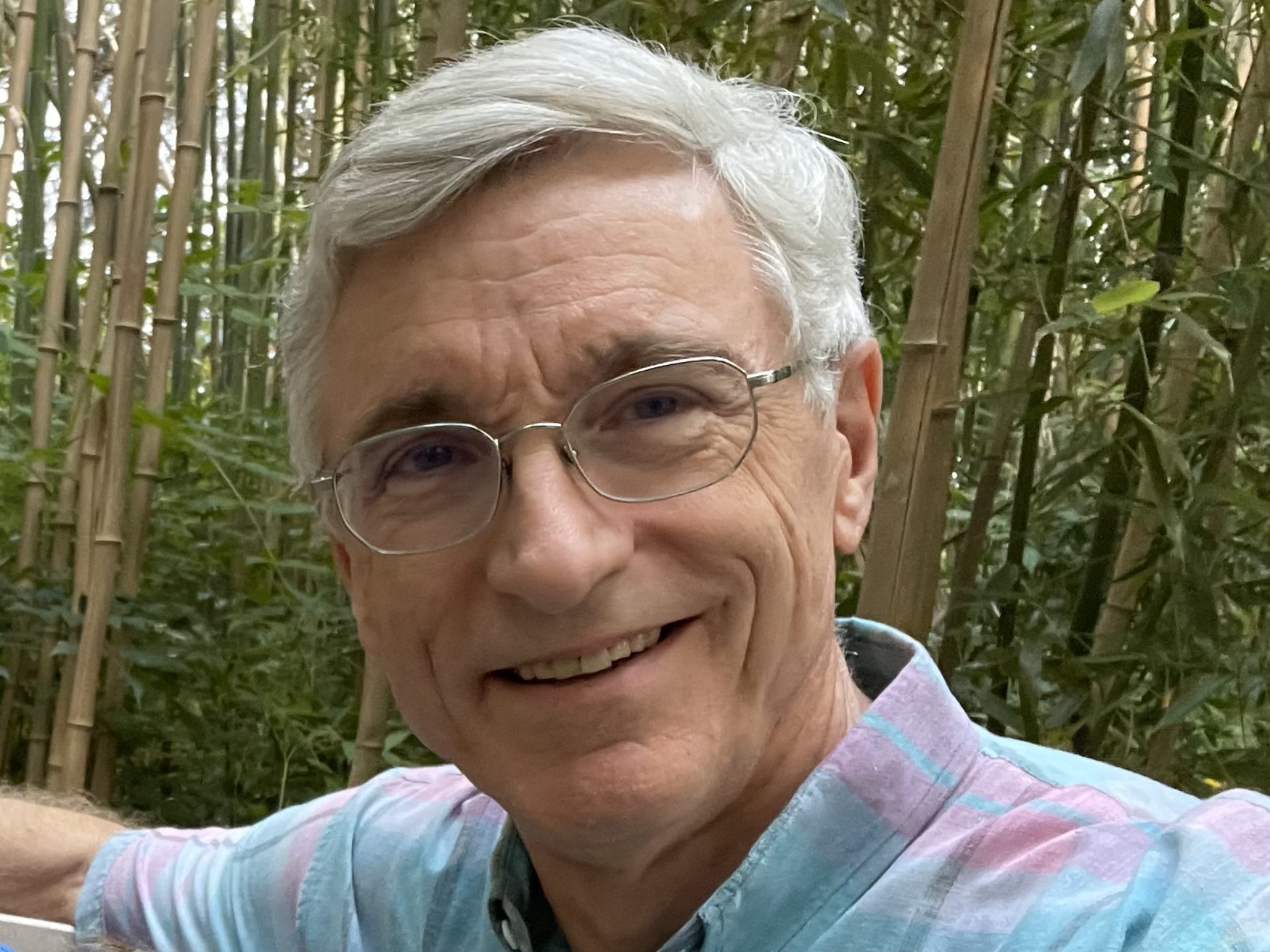
Bob Buesing
Bob Buesing’s support for the Union of Concerned Scientists has spanned nearly 50 years and his entire legal career. As a student, he was inspired by a seminar on the groundbreaking fight to ban the insecticide DDT, led and won by scientists and advocates who presented evidence of its dangers in bird populations. Knowing that UCS employs the same caliber of engaged experts to make policy changes, he began donating when he was in law school.
Read more of Bob's story
“That first of 50 annual gifts I made was out of a starving student’s budget,” he says. “But I’d learned that only through well-researched and thoroughly tested science can we expect to advance and protect our future. So, even though I didn’t have a lot of money, it was important to me.”
Now retired, Bob is no longer living on a student’s budget, and has been fortunate to accumulate savings in an Individual Retirement Account (IRA). When he learned about the Qualified Charitable Distribution (QCD) that allows those over 70½ years old to donate pre-tax dollars to nonprofit organizations directly from an IRA—which can reduce required minimum distributions—he thought of UCS, and what he describes as “the power of the scientific method to build powerful and irrefutable arguments for change.”
Bob took advantage of the QCD to donate to UCS tax-free. It’s both immediately satisfying, he says, and complements the legacy gift set aside for UCS in his estate plans, which will ensure the organization’s work continues. “It’s time to get off the sidelines and put that saved money to work,” he says. “The global climate change crisis urgently requires not one but hundreds, or even thousands, of incremental improvements. I trust UCS’s ability to spot those solutions and build compelling cases with regulators and the public to put them into practice.”
WHERE SCIENCE AND THE LAW OVERLAP
Throughout his career, Bob watched as efforts to protect public health and the environment transformed from popular movements into the realm of public policy. His legal career gave him an appreciation for UCS scientists who can navigate the complexities of these policies and regulations to make positive change. Having seen how labyrinthine these processes can be, he says, “only reinforced my commitment to support the dedicated specialists who share my values, and also understand that complicated world.
“This is not the province of amateurs: only top-notch experts could go toe- to-toe with the forces that ignore the facts in service of shortsighted profit,” he says. “All the more reason to support UCS. No one does a better job of doing the science, building the cases, and sounding the alarms. “I’m blessed with wonderful children and grandchildren. The least I can do for them, and every child everywhere, is invest in the best possible way to make their futures brighter. For me, no organization is more compelling than UCS.”
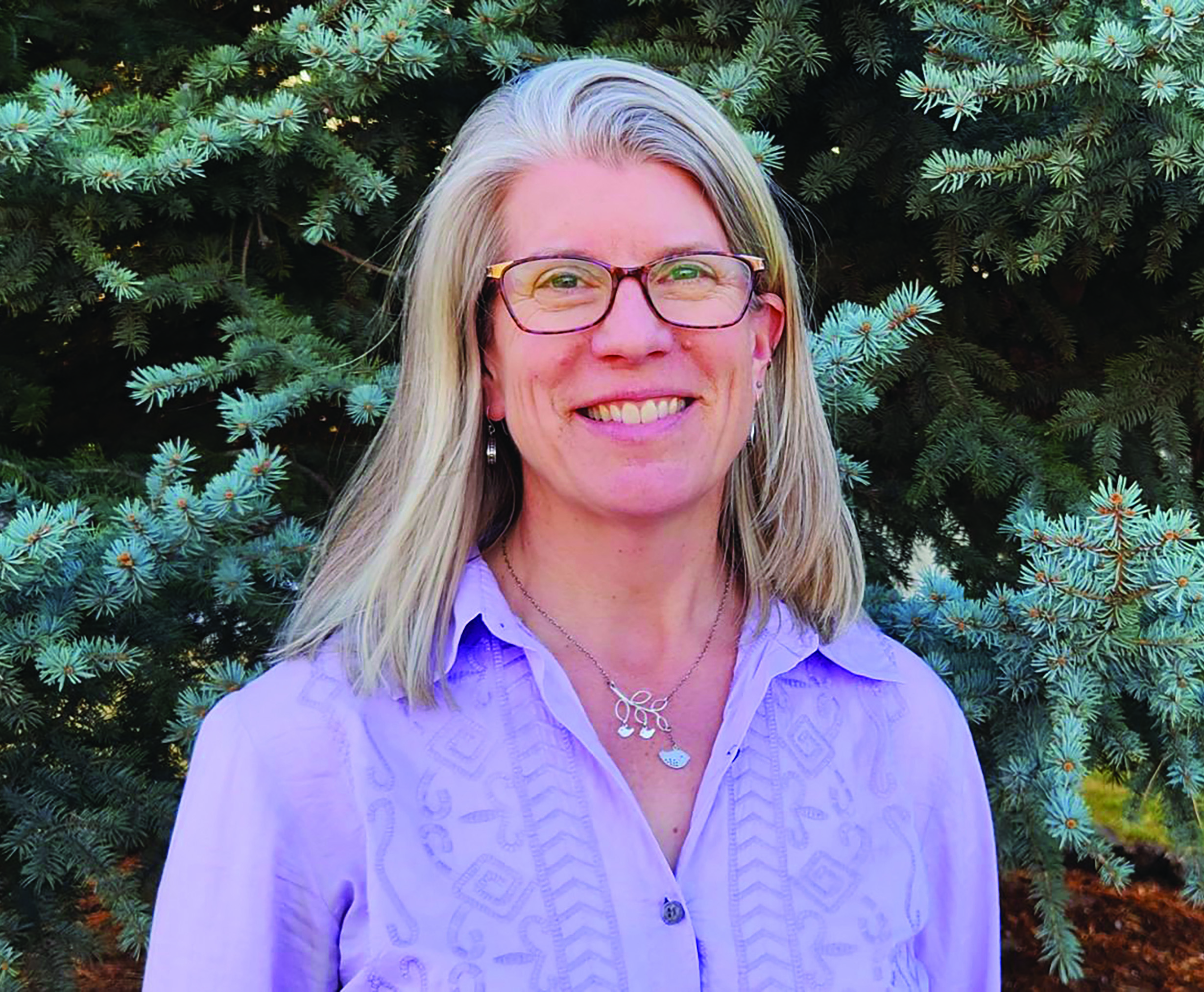
Christine Strickland
As Land and Water Conservation Director with Mountain Area Land Trust, a Colorado-based nonprofit organization that works to conserve land from extensive development locally, Christine Strickland lives by values she’s held since childhood.
Read more of Christine's story
“When I was a kid, I wanted to save the animals,” she says. “Over time, I learned that, saving animals requires saving the land—for example, protecting habitats for endangered species, and mitigating sprawl into wildlife areas. The work of conserving hundreds of acres at a time is tangible and gratifying. It’s my happy place.”
And as a longtime donor to the Union of Concerned Scientists who has also designated the organization as a beneficiary in her estate plans, Christine says she’s honoring values passed down by her parents, which she’s now teaching her own children. “My parents were lifelong philanthropists. It’s part of our family culture and heritage, and goes back multiple generations. My siblings and I were raised from a young age to give back and to be a part of meaningful change,” she says. Her parents were especially passionate about environmental protection and education, she says, which drew her to UCS more than 25 years ago.
“UCS educates the public and policymakers using facts and data. And I’ve long been impressed by the focus on climate, energy, and nuclear weapons reduction. It’s difficult to address food security, fossil fuel reduction, or greening our transportation sector as an individual. Being a UCS member allows me to be part of something bigger, to be part of a smart, science-based, collective impact,” says Christine. UCS’ work in states—for example, on setting emissions standards and boosting the potential for renewable energy—is particularly important to her, as she sees opportunities to make meaningful change at that level.
Christine also sees her support for UCS as an investment in hope, especially as a parent trying to instill her family’s values in a new generation. Her legacy gift is a way to ensure that she can help sustain these values, she says. “It can be challenging to maintain hope given the condition of our climate, ongoing attacks on science, and the urgent need for sustainable agriculture. But UCS truly gives me hope for our climate, our food system, justice for overly-affected communities—and our future.”
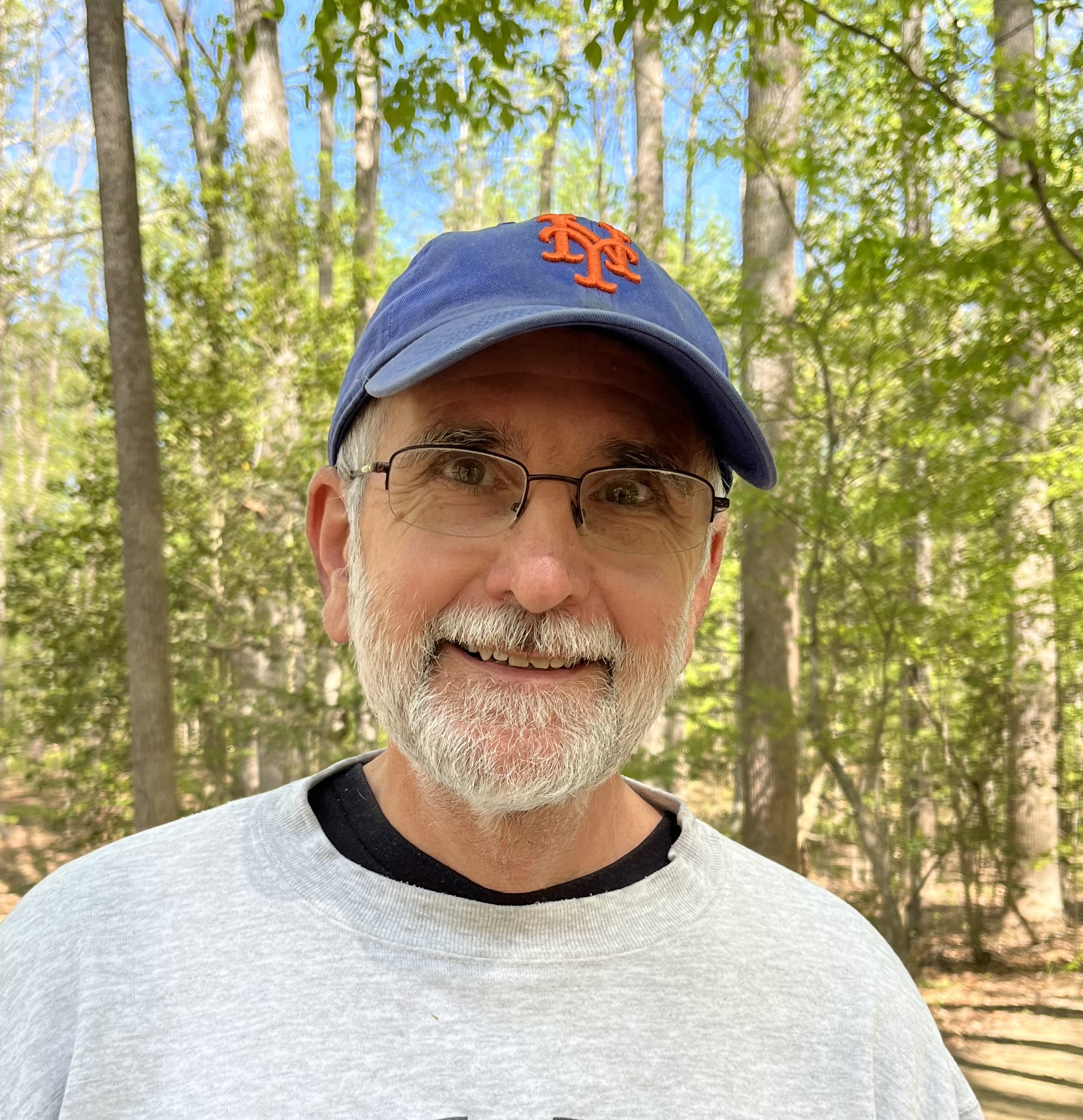
Thomas Brown
After retiring from teaching thousands of students the importance of scientific literacy over 34 years, Tom Brown is still thinking about the role of science in our society. “Even though I’m not teaching anymore, I read about how science is being ignored,” he says. “I’m concerned about science getting its voice, and not being shut down.”
Read more of Thomas' story
This concern motivates Brown to stay involved with local and national issues—frequently contacting his elected representatives to urge them to base policies on science and evidence—and to support the Union of Concerned Scientists, including designating UCS as a beneficiary of the estate plan he shares with his wife.
After ensuring their adult son would be provided for, the Browns thought about their values and legacy. “We talked about the fact that we wanted to give some of our money away to organizations that were significant for us,” Brown says. “For a long time, all I could give was a little at a time. This felt like a way for me to just do a bit more.”
As a National Board Certified science teacher, Brown often brought UCS materials into his classroom as teaching aids. “With my physical science class, I would pull charts and information from UCS about nuclear power,” he says. “The visuals helped my students with low reading levels. And with my biology classes, I would have them read different parts of various UCS publications on food and nutrition, and on climate change, hand-picking the essential parts.” In and out of the classroom, Brown went above and beyond to help his students understand complex scientific topics and navigate their lives—and as a testament to his kindness, many of his former students are still in regular contact with him, including one he walked down the aisle at her wedding, and another whose wedding he officiated this summer.
In UCS, Brown sees a similar community of caring people. “It’s an organization of incredibly dedicated individuals who are focused on using science to make the United States, and the world, better for not just the present but for the future,” he says. When he’s discouraged by the slow pace of progress on climate change federally, he’s cheered by the work UCS does in states and regions to accelerate clean energy transitions. “It’s not just trying to talk to 535 people in Congress and if you’re lucky, a couple of them will listen to you. By going to the states, progress can build up to that federal level—and that makes me feel better about the disappointment that happens in Washington, D.C,” he says.
What Brown appreciates most about UCS is the chance to make a difference on the issues he cares about. “You help make it easy for other people to have a voice, and for us to put our voices together,” he says.
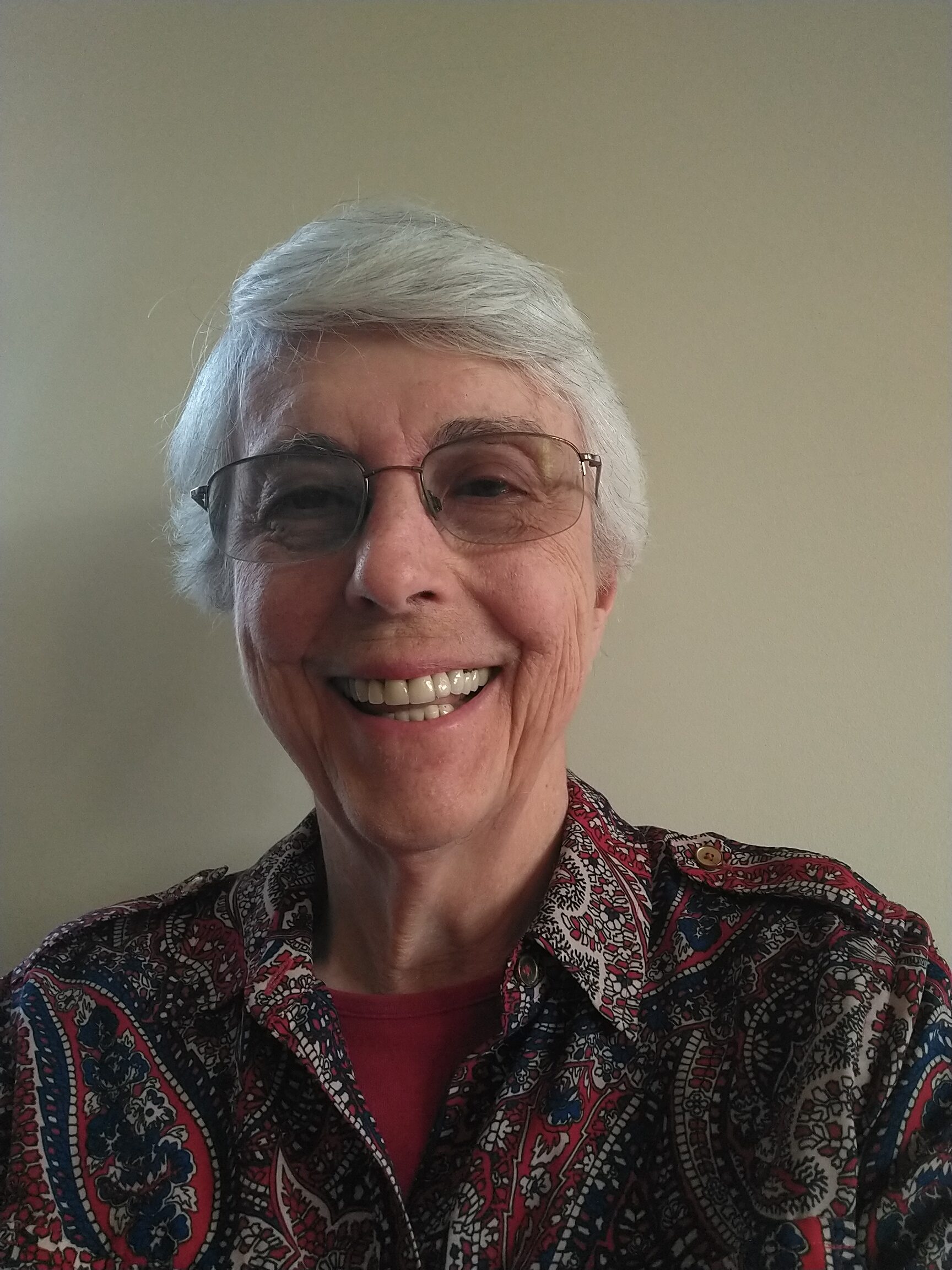
Grace Hall
Grace Hall wouldn’t have considered herself an activist during her career as a chemist and while she was raising her family. But after retiring, she began paying more attention to issues like climate change and social justice, and wondering how she could make positive changes in her own life.
Read more of Grace's story
“I’m very much taken by all the individual things we can do [to make climate-smart choices],” she says. “If you can get enough people to do these things, that’s great. But when it comes down to it, we need policy change.” She discovered the Union of Concerned Scientists about 15 years ago, and as she became a supporter, she appreciated how UCS experts provide robust, independent science to legislators and other decisionmakers to help shape policy.
“I thought, they’re doing the things I’m not. I liked that UCS staff got to know legislators and developed trust among as many senators and representatives as possible to persuade them to do the right thing. I feel that UCS does a more effective job than a lot of people working on the Hill,” she says.
Hall—who says “Once a chemist, always a chemist, even in retirement”—also joined the UCS Science Network, an inclusive community of more than 23,000 scientists, engineers, economists, public health professionals, and other experts across the country who have volunteered to help educate the public and inform decisions critical to our health, safety, and environment. She values the training and programming the Science Network offers, along with the opportunities to engage on issues relevant to members’ interests.
And finally, Hall has designated UCS as a beneficiary of her estate plan. “I think you get a lot of bang for your buck,” she says of contributing to UCS. “If you’re going to spend money, you should find an organization that is doing what you’re interested in and does it effectively. I’ve always felt that UCS was effective in its work.” As a pragmatist, she adds, she wanted to support an organization that would last—an especially relevant factor while she was considering making a legacy gift. “There are some groups that I really support but I’m not sure about their longevity. UCS seems well-rooted; its work will continue,” she says.
Hall’s interest in activism and political engagement is relatively recent, but today, these commitments fill her life. “It’s never too late to jump in,” she says.
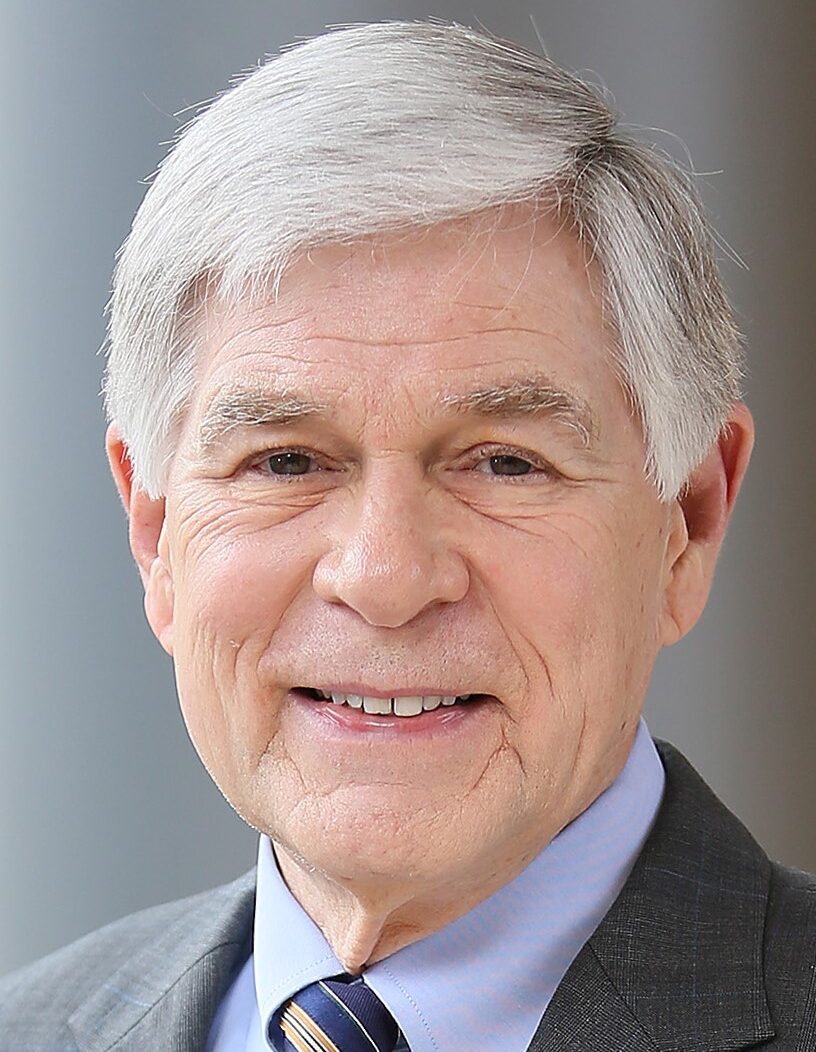
William McCauley
Dr. William McCauley is a retired pulmonologist and former president of the Susquehanna Health (Pennsylvania) Medical Group. While he was still practicing medicine, he began supporting the Union of Concerned Scientists (UCS) because of the breadth of issues UCS supports, each of which he believes is important to our quality of life and survival. “It’s remarkable to me that one organization covers such a broad range of interests,” he says, “including responding to climate change; protecting our land, air, and water; supporting agriculture free of the grip of monopolies; overturning governmental policy inequities; and strengthening democracy.”
Read more of William's story
Bill is also concerned about the unequal burdens of climate change, and how its worst effects tend to hit people with the fewest resources. He sees clearly how efforts to weaken our democracy are connected to climate change—in trying to diminish the political power of those who are most vocal about the issue. “Attacks on our democratic process contribute to inequality,” he says. “We need to try to maintain shared consequences, instead of having the burden fall on the poorest people in our country and on the planet.”
Pragmatically, Bill has considered how he could continue supporting UCS well into the future—even when he is no longer around. “I realized when I’m gone, I can’t continue to contribute on an annual basis,” he says. “But I would like my resources to help UCS going forward. I thought that could best be done through a legacy gift.” To that end, Bill has designated UCS as a beneficiary of his retirement account. “I remain concerned about how humans can continue to live on this planet. Therefore, I support UCS efforts to protect our environment and strengthen our democracy.”
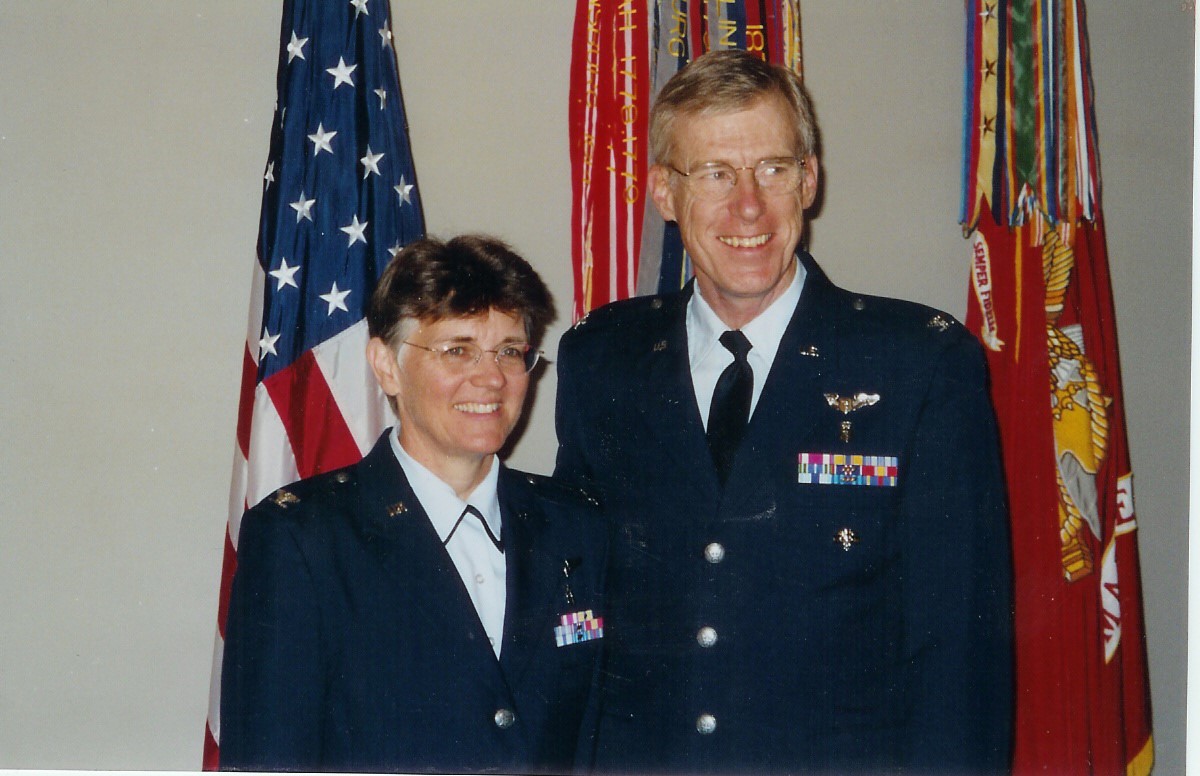
Jane Ward & Steve Waller
After retiring from careers in the United States Air Force as flight surgeons and ophthalmologists–along with numerous other endeavors–Jane Ward and Steve Waller now live on Cape Cod, Massachusetts. Steve teaches Global Health courses online at the Uniformed Services University of Health Sciences, our national military medical school. Jane serves as vice-chair of their town’s volunteer infrastructure and energy committee and is involved in several public education programs. They both spend time with their daughters and grandchild as they look forward to their 50th wedding anniversary later this year. Military service has been part of their lives since they were commissioned as young adults; today, they’re focused on serving their community.
Read more of their story
“I don’t think either one of us could just put our feet up,” Jane says of retirement. “There’s more opportunity now for us to give back and to be involved. I don’t even sit down very much during the day.”
Steve and Jane are invested in participating in the solutions to the challenges they observe in the world, including educating friends and community members about COVID-19 as medical professionals, and living sustainably within their fragile local ecosystem. They’ve installed solar panels on their well-insulated and electrified home, purchased a low-emissions, plug-in hybrid car, and volunteered for local organizations working on green initiatives. They practice permaculture “forest gardening” to make their yard more sustainable. And with an eye to the future, they’ve made the gift of a charitable annuity to the Union of Concerned Scientists—a tax-deductible donation of money or assets that pays donors a fixed stream of income for the rest of their lives.
The couple are interested in UCS analysis and advocacy around voting rights, clean transportation, and water policies. And with their backgrounds in medicine, Steve and Jane say, they especially care about preserving the role of science as foundational to policy creation in federal, state, and local governments. “I don’t remember ever before feeling as horrified about the need to actually defend science in our lifetime as in the last four or five years,” Jane says. “UCS has critically important impact lobbying on behalf of science.”
After their careers in public service, Steve and Jane want to make sure they spend their savings to support the issues that they care about the most. They agree that, “Organizations like UCS are doing a great job towards educating and advocating for issues that will benefit the public good.”
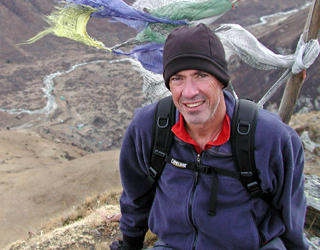
Dennis Sullivan
In 2004 Dennis Sullivan retired from a long and successful career in the financial services industry to relocate beyond the greater New York City area—his home for many years—and spend more time outdoors.
Read more of Dennis’ story
An experienced hiker, cyclist, triathlete, and marathon runner, Dennis ruefully admits that “Sitting behind a desk for my entire career, I always had the urge to get outside and be active.”
He moved from Newark, New Jersey, to Troy, New York, to be closer to the Adirondack Mountains of upstate New York, a region he had come to love over the years. He quickly got involved with local groups working to protect the Adirondacks and steadily grew more aware of the impact that global warming and misguided energy policies were having on this tremendous natural resource.
It was through his connections with local organizations that Dennis first learned about the Union of Concerned Scientists. He would often see UCS cited in articles and in newsletters, and eventually he checked out the UCS Web site, becoming a regular reader of our reports and policy updates. Immediately, he recognized that UCS’s work at the national and regional levels had a “direct impact on the Adirondacks and a direct connection with the work of the local groups I support.”
Dennis soon became an annual supporter of the Henry Kendall Society, UCS’s leadership giving society, and then, in short order, joined the Kurt Gottfried Society. He takes comfort in knowing that he is providing for UCS now and in the future, and he considers his bequest intention to be “one of the most unselfish things I, or anyone else, can do.”
Asked to articulate what he appreciates most about UCS, Dennis says: “To preserve the planet for future generations, we need to aggressively confront large issues like climate change and preventing nuclear weapons proliferation. It’s easy to be critical and present dire messages about the future but much harder to frame our challenges as opportunities and generate excitement about the solutions that exist. UCS is a forceful, clear voice calling for solutions and facilitating communications to policymakers and the public.
“I am very impressed with the scope of UCS’s activities, the clarity of the message, and how aggressively UCS is focused on the best solutions to every problem it tackles. UCS helps me better understand both the issues that concern me most and the solutions that give me hope.”
“One of the most unselfish things I, or anyone else, can do.”
—Dennis Sullivan, on leaving a gift to Union of Concerned Scientists
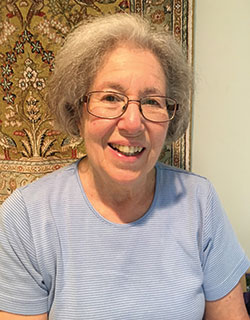
Helen Daniel
At the dawn of the television era, when she was a child in the ’50s and ’60s, Helen Daniel remembers her parents becoming incensed by false advertising.
Read more of Helen’s story
“Lumber companies would advertise that they were tree-growing companies,” she says. “Watching at home, my father would yell back at the TV. I grew up with that: when something was a blatant lie, especially when it had to do with the destruction of resources, you’d call it out.”
Ms. Daniel’s commitment to truth-telling led her to the Union of Concerned Scientists, which she began supporting in 1982.
“UCS looks into the politicization of science,” she says. “With certain administrations, that’s been the case—where science becomes politicized, or it gets buried. I think UCS has been really good about making sure that these issues are out there in the open.”
Ms. Daniel especially appreciates that UCS tells the truth about climate change, backed by evidence.
“When you’re making decisions about an issue like climate change, you need to look at facts. UCS stands out as an organization that has the wherewithal to interpret the issue and communicate the facts and the consequences of ignoring that issue,” she says.
After donating to UCS regularly for more than 20 years, Ms. Daniel retired. Always a pragmatist, when the economic recession of 2008 reduced the value of her home and retirement accounts, she began looking for a better option for her assets. With an MBA degree in finance and years of experience as an accountant, she quickly landed on a solution.
“I’m a good number-cruncher,” she says. “I never had a pension myself, but I knew I needed to set up something that would work like a pension.”
After meeting with UCS Planned Giving staff, Ms. Daniel set up an irrevocable charitable trust that pays her an annual income—much like a pension. She can add to the trust over time to increase her income, and she controls the portfolio’s mix of investments. After her lifetime the balance of the trust will be distributed to a few of her favorite charities, including UCS.
“It’s worked beautifully,” she says of the trust, now in its third year. “It’s more than exceeded the expectation I had.”
To UCS members who are considering their retirement options, Ms. Daniel has truth to deliver about the benefits of a charitable remainder trust such as hers.
“Friends, family members of mine: they knew exactly what they were going to get when they retired,” she says. “But today, defined pension plans are like dinosaurs. The generation after mine is probably never going to have them. You’ll need to think about how to manage your retirement so you won’t run out of money.”
A charitable remainder trust, she says, can be a great alternative to the pension plans of the past.
“It hits all the good points,” says Ms. Daniel. “An easier retirement, a tax break, and supporting the things you care about.”
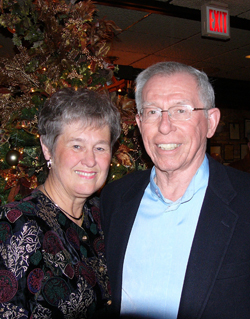
Dave & Sandy Matteson
What draws people to support the Union of Concerned Scientists? In the case of Dave and Sandy Matteson, it was just another case of “voting for what you value.”
Read more of their story
In addition to investing in socially responsible funds and stocks, they invest in charitable organizations that reflect their own values.
The Mattesons, who call Crete, Illinois, home, are self-proclaimed “nature lovers” who are passionate about the environment. Their desire for a clean, healthy environment also has a personal dimension: they raised an asthmatic son so they know firsthand the long-term effects of air pollution.
As a retired psychologist and ordained Protestant minister, Dave finds UCS’s scientific integrity refreshing and absolutely critical in the thick of all the doublespeak, deception, and propaganda put forth by special interests. He says he’s more likely to read UCS magazines and other publications because only UCS explains the science behind issues in language that a layperson can understand.
“I appreciate the way UCS challenges the phony science which corporations and politicians use to diminish the importance of the human contribution to global warming,” he says.
Both Dave and Sandy focused their careers on helping others. Dave’s desire to work directly with people led him to positions as an adolescent clinical counselor, a minister, and ultimately, a psychology professor at the undergraduate and graduate levels. Sandy is a retired pediatric nurse who started her own business providing specialized at-home nursing care for long-term pediatric care patients and their families.
As they considered retirement, it made perfect sense to include UCS in their planning and direct their charitable giving in ways that would continue to help improve the condition of the world. Dave and Sandy chose to establish multiple deferred charitable gift annuities with UCS because they could make significant gifts to support our work and secure a steady income for a time in the future when they needed it most.
“Giving through the [Kurt Gottfried] Society helps us plan our financial future,” says Dave, “and gives UCS the stable source of funding it needs for the future. We enjoy immediate tax benefits and arrange for additional retirement income later while helping to ensure UCS remains a strong, effective organization for many years to come.”
“Giving through the [Kurt Gottfried] Society helps us plan our financial future and gives UCS the stable source of funding it needs for the future.”
—Dave Matteson
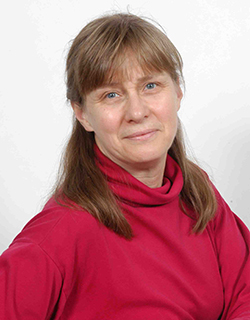
Melissa Melum
Melissa wanted to make a gift that would foster environmental health and safety for future generations. By establishing a charitable gift annuity with UCS, Melissa was able to realize both her philanthropic and retirement goals.
Read more of Melissa’s story
More specifically, Melissa wanted to make a gift that would foster environmental health and safety for future generations. By establishing a charitable gift annuity with UCS, Melissa was able to realize both her philanthropic and retirement goals.
Melissa recognized that her financial plan for retirement should focus on using income from investments rather than spending principal. Therefore, she felt very comfortable using a portion of her realized assets to fund a charitable gift annuity with UCS as a component of a diversified financial plan.
“The CGA provides a reliable and stable source of income with excellent tax benefits,” Melissa says. “And it meets my goal of making positive use of my resources while also meeting my financial needs.” While the CGA will provide quarterly payments to Melissa for life, it also provides UCS with a base of predictable long-term support.
A History Built on Trust
Melissa was drawn to the Union of Concerned Scientists’ application of sound science to advocate for public policy that protects the environment and food supplies, and she made her first gift to the organization more than 20 years ago.
Because of her long-standing membership, Melissa was aware of UCS’ successful track record and prudent oversight of financial resources—a critical element in her decision to establish a CGA with UCS. After all, a gift annuity is only as secure as the organization that issues the gift annuity. Melissa believes that when establishing a charitable gift annuity, “it is essential to be dealing with an organization that has a long and stable history with solid management and an excellent reputation, and UCS meets these criteria.”
UCS’s commitment to sound science and focus on agricultural issues continue to inspire Melissa’s commitment to the organization.
“I think the campaign for supporting scientific integrity in public debate is an important and distinctively UCS effort,” she says. “It’s a campaign that has important implications now and will continue to be vital for years to come—even more of a reason to make sure that resources are on hand to support UCS in the future.”
Melissa’s charitable gift annuity will do just that, and UCS is grateful for her vision and generous commitment to a healthy environment and a safer world.
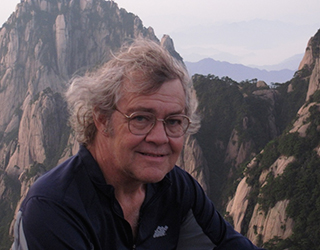
C. Edwin “Ed” Baker
During his lifetime, C. Edwin “Ed” Baker was the Nicholas F. Gallicchio Professor of Law and Communication at the University of Pennsylvania Law School and one of the country’s foremost authorities on free speech, the First Amendment, and mass media policy. For more than 30 years he was also a dedicated member and annual supporter of the Union of Concerned Scientists.
Read more of Ed’s story
Before he passed away unexpectedly in December 2009, Ed established a trust in his estate plan and included a unique provision in his will to provide ongoing support for the organizations and causes he cherished most. In his plans Ed designated a committee—made up of his sister and three of his closest friends—and charged them with determining how to best distribute the assets in the trust to his favorite causes.
Recognizing Ed’s loyal support of UCS and our commitment to help extend the passions and beliefs of this visionary scholar, the committee made a generous gift from Ed’s estate to honor his legacy and UCS’s important mission.
How Ed Is Helping Today
In recognition of Ed’s work and the commitment he shared with UCS to elevate science and policy issues for public consumption through the media, we created the C. Edwin Baker Media Internship, which provides paid internship opportunities for current undergraduate students and recent graduates to work as part of UCS’s media and communications team.
Ed’s sister Nancy says, “Ed was greatly concerned about the environment and also greatly concerned about the effect of advertising on our media and the resulting damage to the informed populace on which democracy depends. He believed very strongly that progressive people need to become more sophisticated in our use of the media if we are to have any hope of advancing the issues that protect the planet.”
UCS has a deep understanding of the critical role that effective media communication plays in making progress and bringing about change. Ed’s generous bequest will enable UCS to provide meaningful experiences for talented, promising young people while adding critical capacity to our own staff in a fast-paced, ever-evolving media landscape.
Ed’s life and his unexpected death serve as important reminders that it is never too early or too late to consider what you want your own legacy to be—and to prepare your estate plan accordingly.
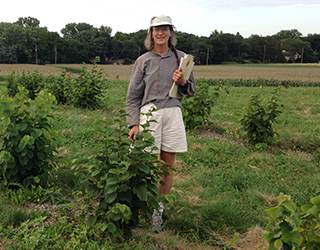
Lois Braun
Lois Braun is a member of an agricultural research team working to develop perennial crops that can thrive in the upper Midwest, as an alternative to the environmentally destructive corn and soybeans grown on a massive scale in the region—including in Minnesota, where she lives.
Read more of Lois’ story
“My work is very slow, painstaking plant breeding,” she says.
The hazelnuts she studies have a breeding cycle of 17 years, so it’s unsurprising that Braun, at the age of 53, has spent a lot of time thinking far ahead. When both of her parents passed over the last few years, leaving her with a cash inheritance, she immediately thought about the future: her own and others’.
Braun’s parents were missionaries, a doctor and a nurse, who raised her in Ghana, West Africa, and rural Tennessee. Staunch environmentalists, they were also frugal spenders and generous givers. Eying her inheritance, Braun realized she didn’t need the money—yet.
“I inherited my parents’ frugality,” she says. “I have significant savings. I thought, ‘I need to do something with this money that will be true to my values and honor them.’ ”
After carefully weighing her options, Braun, a longtime supporter of the Union of Concerned Scientists, chose to invest part of her inheritance in a deferred flexible charitable gift annuity with UCS. She’ll receive a tax deduction for her gift this year. And when she nears retirement, she’ll have the choice of accepting mostly tax-free income from the gift at a certain age or deferring it even further until she’s ready to take it.
“I’m younger than most people who do this kind of thing,” Braun admits. “What I like about it is the fact that it’s not [a source of income] that I’m going to deplete.”
Braun also appreciates that her contribution will fund UCS’s work for a healthier planet and safer world—as opposed to the potential pitfalls of investing money elsewhere.
“What is the stock market doing with your money while you wait to use it?” Braun says. “Are they building a society that you’re going to want to live in when you’re retired? Part of my quality of life when I am old will depend on having a healthy, educated, happy population of younger people. And it will depend on having a healthy environment and a stable climate.”
“I have significant savings. I thought, ‘I need to do something with this money that will be true to my values and honor them.’ ”
—Lois Braun
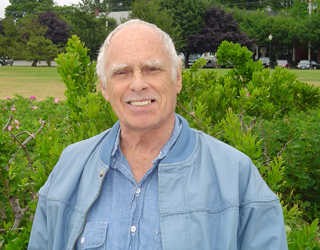
Richard Leavitt
Growing up near the Atlantic coast in Durham, New Hampshire, Richard Leavitt developed a deep and abiding respect for the woods, meadows, salt marshes, and estuaries that surrounded him. Now, living in a similar environment in Provincetown, Massachusetts, he tries to protect it through his support of the Union of Concerned Scientists.
Read more of Richard’s story
A retired teacher of the sciences and humanities, Richard has traveled widely during his lifetime and spent eight years living in Japan. He has seen and read about much of the environmental devastation that has occurred around the globe, which has led him to believe strongly in the thoughtful research and technical analysis that UCS uses to address some of the most critical environmental challenges faced by the planet.
In addition to supporting UCS with generous annual support, Richard has chosen to further his commitment by establishing two charitable gift annuities. “I would have left a bequest to UCS anyway, so the gift annuity allows me to support the organization, do what I can for the environment, simplify my will, and receive an immediate financial benefit,” he explains. Richard also likes the reliability of the charitable gift annuity; the regular payments allow him to escape the ups and downs of the stock market. He adds, “I trust UCS to use my money exactly as I would want.”
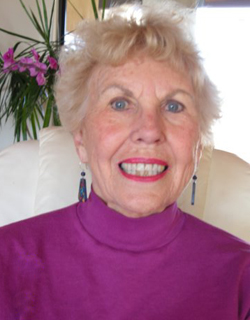
Patricia Judd
Retired English professor Patricia Judd has always avidly followed current events and critical environmental issues, which are what first led her to begin supporting the Union of Concerned Scientists nearly 40 years ago.
Read more of Patricia’s story
But the Santa Fe resident’s interest in climate change was galvanized a few years ago by a guest speaker at her church, the Santa Fe Unitarian Universalist Church. The speaker, she remembers, “presented global warming as a profoundly moral issue in terms of our responsibility to our children’s children and those following them.”
After that night Patricia felt a new sense of urgency about global warming. This concern, she says, “has grown stronger as we have failed to act effectively as a nation.” She was determined to take decisive action to make a difference.
First, she researched hundreds of worthy causes, to establish which would yield the most “bang for the buck.” Her analysis led her right back to the Union of Concerned Scientists. Patricia became even more impressed by UCS’s “strong advocacy of scientific integrity, its stellar reputation as a reliable source of information, its clout with important congressional committees, and its bipartisan approach.”
Already one of UCS’s longest-term members of the Partners for the Earth monthly giving club, Patricia decided to expand her commitment to UCS. She joined the Kurt Gottfried Society by making a charitable gift annuity—a special giving option that enables an individual to make a gift to a charitable organization in return for fixed annual payments for life.
Patricia believes her decision to join the Kurt Gottfried Society was easy. “I needed to supplement my income during my remaining years, but I wanted my money to be put to work supporting my values rather than simply supporting a financial institution.” Patricia says that her investment in UCS is an investment in “our children’s children” and in our world’s future.
“Policy change is not only the result but also the cause of broad cultural changes in values. For me, UCS is one of the most effective instruments we have for accomplishing this kind of change. You can’t get more bang for the buck than that!”
Join the Kurt Gottfried Society
Together we can do so much. Join a community of people who share your passion for science-based action by becoming a member of one of our giving societies.